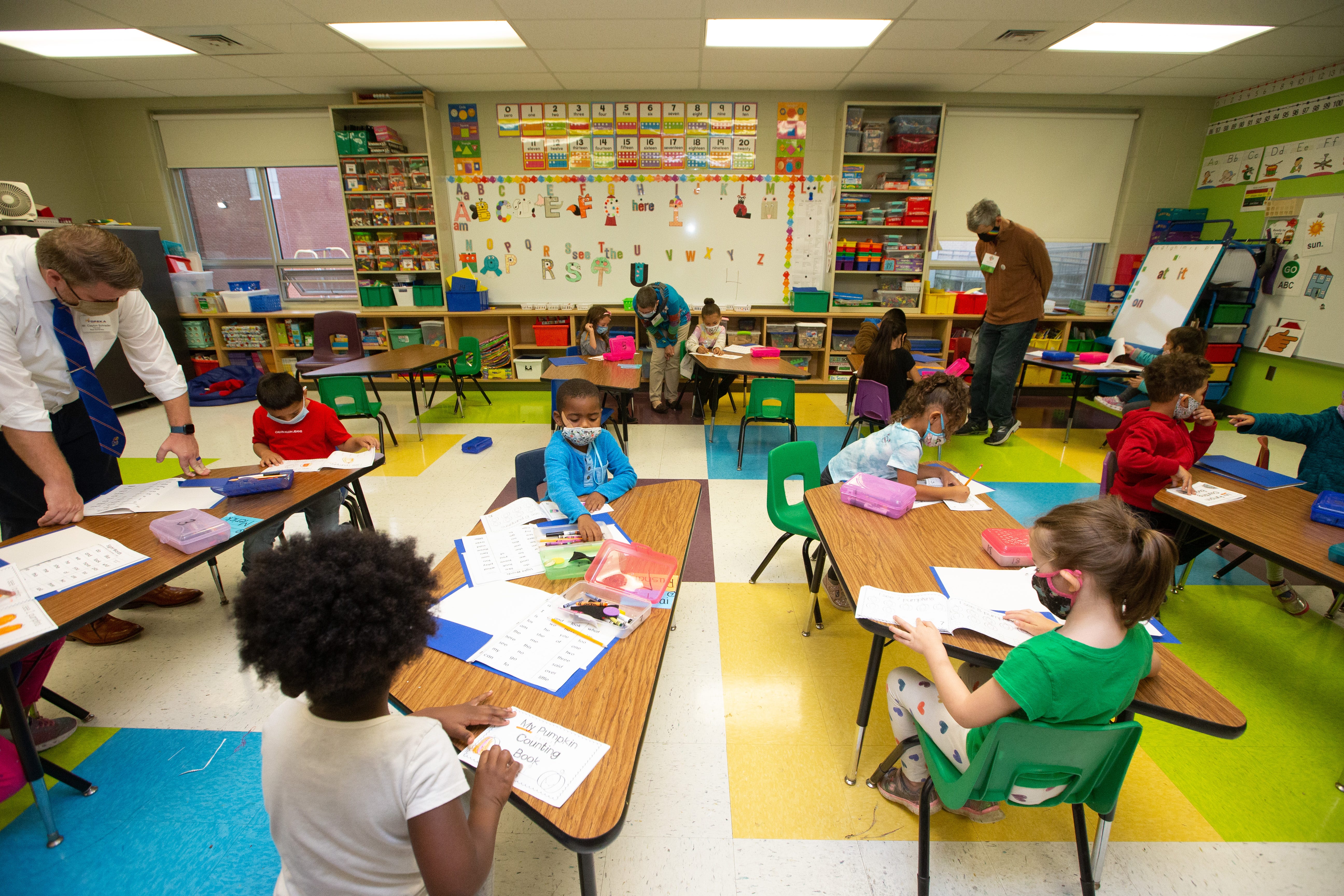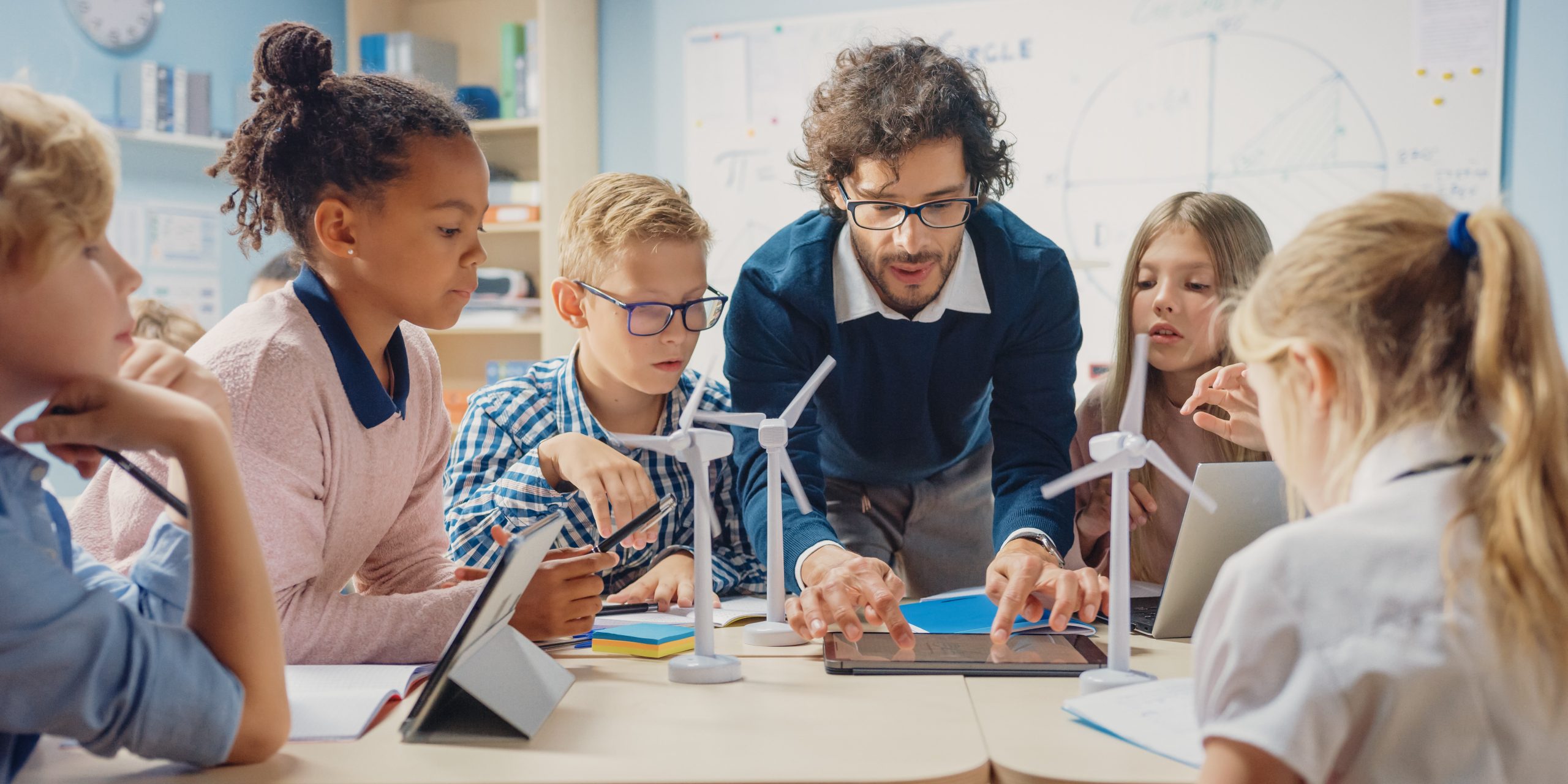The Best Primary Science Tuition Singapore for Effective Learning Methods
Wiki Article
Exploring the Various Teaching Methods in Primary Science Education And Learning Today
Inquiry-based understanding, hands-on experiments, and the combination of modern technology are redefining exactly how educators engage young minds. Additionally, collaborative techniques and distinguished instruction are being employed to provide to the diverse requirements of students, boosting both interaction and understanding.Inquiry-Based Knowing
Inquiry-Based Discovering (IBL) is an instructional method that motivates students to discover clinical ideas with questioning, examination, and hands-on experimentation. This technique stresses the duty of students as energetic individuals in their learning, promoting essential thinking and problem-solving skills. By involving with real-world inquiries, students become inspired and curious, which boosts their understanding of clinical concepts.In IBL, educators work as facilitators, guiding students as they navigate their inquiries rather than providing details straight. This student-centered strategy permits for distinction, suiting numerous discovering speeds and designs. Students create skills in formulating hypotheses, creating experiments, and assessing information, which are crucial for scientific proficiency.
In addition, IBL cultivates partnership among students, encouraging them to share findings and ideas. This collective inquiry advertises social abilities and a feeling of neighborhood within the classroom. Additionally, the process of inquiry urges strength, as students find out to welcome failure as a stepping rock towards understanding.
Hands-On Experiments
Hands-on experiments are an essential element of effective scientific research education and learning, matching the principles of inquiry-based understanding. These experiments permit trainees to engage straight with scientific ideas, fostering a much deeper understanding via experiential discovering. By controling materials and observing end results, young students can comprehend abstract concepts in substantial means.Such activities advertise crucial reasoning and analytical abilities, as pupils hypothesize end results, conduct experiments, and evaluate outcomes. This process urges them to ask questions, fine-tune their understanding, and create a scientific frame of mind. Furthermore, hands-on experiments can be customized to varied knowing designs, guaranteeing that all pupils have the opportunity to involve meaningfully with the web content.
Furthermore, hands-on experiments usually motivate collaboration among peers, promoting team effort and interaction skills. Operating in teams allows students to share concepts, talk about searchings for, and learn from one another, which boosts their overall academic experience.
Integrating hands-on experiments right into the main scientific research curriculum not just improves the learning environment but also cultivates a lifelong passion in science. By actively participating in their education, students are more most likely to establish an enthusiasm for clinical questions that expands beyond the class.

Technology Combination
Incorporating modern technology right into key scientific research education and learning has become significantly vital in fostering trainee involvement and boosting finding out outcomes. The use of electronic devices, such as interactive simulations, digital laboratories, and academic software application, offers students with opportunities to discover clinical ideas in innovative ways. These sources assist in a deeper understanding of complex subjects by enabling learners to envision and control variables that would be impractical in a typical class setting.Moreover, modern technology combination encourages individualized finding out experiences. Trainees can progress at their very own speed, revisiting challenging ideas through multimedia resources, which accommodate different discovering styles. This adaptability not just sustains specific growth but also grows a sense of freedom in learners.
In addition, innovation functions as a bridge to real-world scientific research, connecting trainees with current research study and expert contributions. Accessibility to clinical journals and on-line databases widens students' point of views on scientific query and cultivates critical believing abilities.
Collaborative Learning
Collective learning plays a crucial duty in main scientific research education by cultivating teamwork and communication abilities amongst trainees. This strategy encourages learners to interact, share expertise, and participate in analytical, which boosts their understanding of clinical concepts. By joining team tasks, pupils find out to articulate their ideas, listen to varied perspectives, and discuss remedies, all of which are important skills in both academic and real-world contexts.
Research study indicates that collaborative understanding can cause enhanced inspiration and involvement in scientific research subjects, as pupils locate pleasure in shared experiences (primary science tuition Singapore). Additionally, this approach prepares pupils for future collaborative ventures, outfitting them with the skills required for efficient synergy in college and professional atmospheres. Inevitably, embracing collective understanding in primary science education and learning can considerably enrich the knowing experience and advertise a much deeper understanding of clinical inquiry
Separated Guideline

Distinguished guideline can show up in numerous ways, such as varying the content, processes, or products of understanding. Instructors may use tiered jobs that give differing degrees of complexity, enabling students to work at their particular preparedness levels. In addition, flexible organizing methods can promote collaboration among students with different capacities, fostering peer discovering.
Analysis plays a critical duty in this technique, as it educates guideline and helps instructors comprehend each student's one-of-a-kind requirements. Formative analyses, such as quizzes and observations, can lead instructors in adjusting their approaches to improve learning results. primary science tuition Singapore. Ultimately, by implementing set apart direction in primary science education and learning, educators can grow a much more efficient and equitable knowing atmosphere, encouraging all trainees to reach their full capacity in understanding scientific phenomena
Conclusion
In recap, the diverse training techniques in primary science education and learning, including browse around here inquiry-based learning, hands-on experiments, innovation combination, collaborative discovering, and distinguished instruction, jointly add to an extra reliable knowing environment. These methods advertise crucial thinking, analytic abilities, and a much deeper understanding of scientific concepts. By implementing these approaches, educators can create supportive and engaging classrooms that deal with the different requirements of trainees, eventually cultivating a long-lasting passion in scientific research and boosting academic achievement.Inquiry-Based Knowing (IBL) is an instructional strategy that urges pupils to discover clinical principles via wondering about, investigation, and hands-on testing.Collective discovering plays a crucial function in main science education and learning by cultivating synergy and communication skills among students.Research indicates that joint understanding can lead to raised inspiration and involvement in science subjects, as pupils locate pleasure in shared best site experiences.In fostering an inclusive understanding environment, separated direction emerges as a key approach to accommodate the diverse demands and abilities of pupils in primary scientific research education and learning. Eventually, by implementing set apart direction in key science education and learning, teachers can grow a more efficient and fair discovering setting, equipping all pupils to reach their full capacity in recognizing scientific sensations.
Report this wiki page